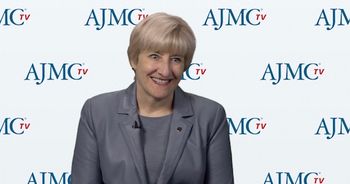
Keeping people with cancer out of the hospital is a low-hanging fruit that is of huge benefit to patients, explained Barbara L. McAneny, MD, president of the American Medical Association.

Keeping people with cancer out of the hospital is a low-hanging fruit that is of huge benefit to patients, explained Barbara L. McAneny, MD, president of the American Medical Association.
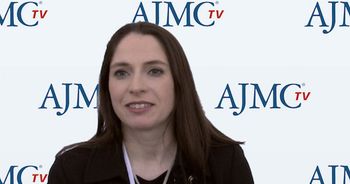
Elizabeth Griffiths, MD, associate professor of oncology, department of medicine, Roswell Park Comprehensive Cancer Center, discusses the prevalence of neutropenia in patients with acute myeloid leukemia and patient/clinical characteristics that can predict which patients will become neutropenic.

The Oncology Care Model (OCM) is not a sustainable model, but while it finishes out the 5-year pilot, CMS will likely be fine-tuning bundled payments in medical oncology, said Michael Kolodziej, MD, vice president and chief innovation officer at ADVI Health, Inc.
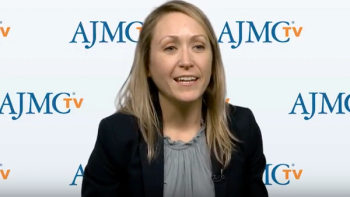
While opioids tend to cost very little, they lead to overutilization downstream, so patients with opioid use disorder should be treated in a comprehensive manner that includes behavioral health and social support, said Elizabeth Stringer, PhD, chief science and clinical officer of axialHealthcare.
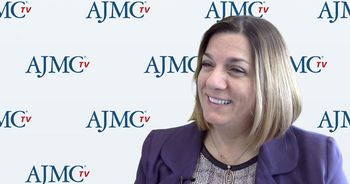
Implementing the Oncology Care Model required educating physicians and staff on a new way to do the work and why the changes were necessary under the new model, explained Sibel Blau, MD, medical oncologist at Northwest Medical Specialties, PLLC.

As new breakthrough therapies are approved, clinical pathways have to be kept updated in order for patients to get the best treatments, said Robert Daly, MD, MBA, medical oncologist, Memorial Sloan Kettering Cancer Center.
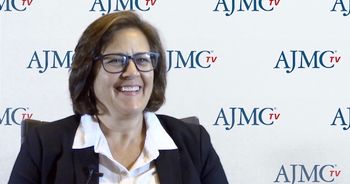
Patients with neutropenia or at risk of it need to be cautious of their diet, said Beth Wittmer, RN, OCN, manager of care management at Florida Cancer Specialists and Research Institute.
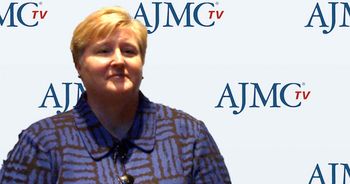
The greatest unknown if which reimbursement model for these high-cost therapies will gain supremacy, explained Jane F. Barlow, MD, MPH, MBA, senior advisor, Center for Biomedical Innovation at Massachusetts Institute of Technology.
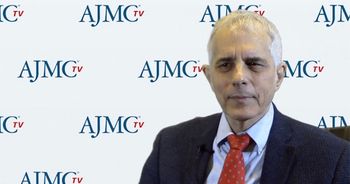
While patient-reported outcomes don’t provide the whole story, they can provide insight into how chimeric antigen receptor (CAR) T-cell therapy changes a patient’s life, said Brian Koffman, MDCM, DCFP, DABFM, MS Ed, medical director, CLL Society.

Project ECHO can be used to improve access to care in rural and underserved areas by sharing knowledge, said Sanjeev Arora, MD, FACG, MACP, director and founder of Project ECHO and a professor of medicine at University of New Mexico.

Jeff White, PharmD, MS, staff vice president, Anthem, outlines best practices for preventing opioid misuse.
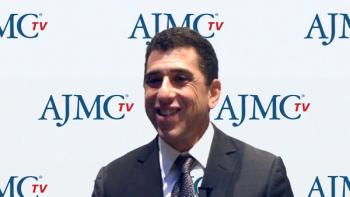
Dan Mendelson, MPP, founder, Avalere Health, discusses how the shift to value-based care has impacted managed care pharmacy.

The American Medical Association (AMA) has 3 main strategic areas it is focusing on to help create the healthcare system of the future that is deserving of doctors’ work and patients’ respect, said Barbara L. McAneny, MD, president of the AMA.
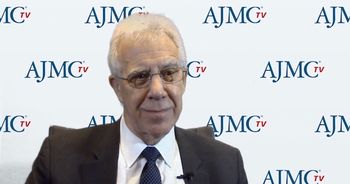
Improvements in treatments have led to less toxicities and better quality of life for patients with breast cancer, said Lawrence N. Shulman, MD, director of the Center for Global Cancer Medicine at the Abramson Cancer Center, and professor of Medicine at the Hospital of the University of Pennsylvania.

Informing patients about what to look for with neutropenia can help keep them out of the emergency department (ED) so they can be treated in the clinic, instead, said Beth Wittmer, RN, OCN, manager of care management at Florida Cancer Specialists and Research Institute.

Years before the Oncology Care Model (OCM) was implemented, Northwest Medical Specialties started preparing by making changes to the personnel in the practice, explained Sibel Blau, MD, medical oncologist at Northwest Medical Specialties, PLLC.
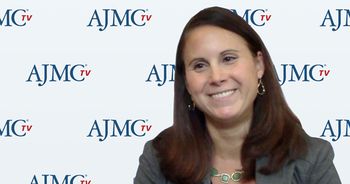
Pushing accountable care organizations (ACOs) to take on risk faster will likely result in ACOs that aren’t ready just dropping out of the program and could impact participation in value-based care, said Allison Brennan, MPP, senior vice president of government affairs for the National Association of ACOs.

There are a number of nonopioid options, as well as nondrug options, for pain management, explained Jeff White, PharmD, MS, staff vice president, Anthem.
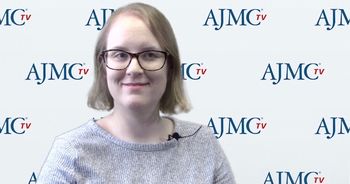
The Blueprint for Complex Care takes into account what work is already being done and outlines next steps to continue to change the way care is delivered to patients with complex health and social needs, said Teagan Kuruna, research writer at the Camden Coalition of Healthcare Providers.

While new therapies like chimeric antigen receptor (CAR) T-cell therapy, can have amazing results, the innovation of these treatments has outstripped the United States’ ability to pay for them, said Michael Kolodziej, MD, vice president and chief innovation officer at ADVI Health, Inc.

What happens outside of the physician’s office is important to a patient’s health and the American Medical Association (AMA) is working to extend the physician’s and better measure social risk factors in addition to medical ones, explained Barbara L. McAneny, MD, president of the AMA.

The National Center for Complex Health and Social Needs gives patients who face barriers to care and in their everyday life a platform to tell their stories and a chance to meet others facing similar issues, said Maritza Gomez, program assistant for community engagement at the Camden Coalition of Healthcare Providers. About a dozen consumer scholars will attend Putting Care at the Center, the National Center for Complex Health and Social Needs' conference December 5-7 in Chicago.
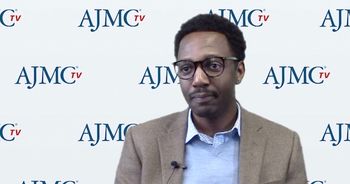
The Putting Care at the Center meeting, which will be held December 5-7 in Chicago, Illinois, helps build a community among people who are working to improve care for patients with complex health needs so they can collaborate and share best practices, explained Victor Murray, director for care management initiatives at the Camden Coalition of Healthcare Providers.
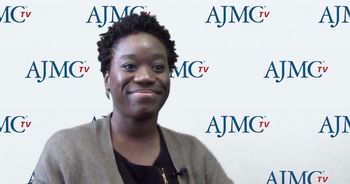
The Putting Care at the Center meeting, being held December 5-7 in Chicago, Illinois, is the only meeting solely dedicated to sharing best learnings about delivering care to patients with complex health and social needs. People who attend the meeting will be able to meet others from around the country who are putting plans into action and attend panel discussions and workshops, explained Mavis Asiedu-Frimpong, director for national initiatives at the Camden Coalition of Healthcare Providers.

Practices that had experience with the COME HOME community oncology medical home model didn’t perform any better in the Oncology Care Model (OCM) than other practices, explained Barbara L. McAneny, MD, president of the American Medical Association.

In 2015, NCCN introduced the NCCN evidence blocks which is a tool that allowed for clinicians and patients to have a conversation about what is important to a patient’s individual value system, said Lyn Fitzgerald, senior vice president of US & Global Development at NCCN.

There are more similarities between patients with opioid dependency and patients with opioid misuse and abuse than physicians have been led to believe, said Elizabeth Stringer, PhD, chief science and clinical officer of axialHealthcare.

The Project ECHO program helps make local community providers into experts in specialty areas in order to improve access to care for their patients, explained Sanjeev Arora, MD, FACG, MACP, director and founder of Project ECHO and a professor of medicine at University of New Mexico.

As healthcare becomes an increasingly important issue in society, it’s necessary for researchers to be able to produce work that is digestible for broad audiences, which is something Erin Trish, PhD, an assistant research professor at the University of Southern California (USC) Price School of Public Policy and associate director of health policy at the USC Schaeffer Center, excels at, explained Dana Goldman, PhD, the Leonard D. Schaeffer Chair and director of the USC Leonard D. Schaeffer Center for Health Policy and Economics and Professor of Public Policy, Pharmacy, and Economics at the USC Sol Price School of Public Policy and USC School of Pharmacy.

The practices in the Quality Cancer Care Alliance (QCCA) are able to share data to improve the quality of cancer care delivered to patients, explained Sibel Blau, MD, medical oncologist at Northwest Medical Specialties, PLLC.